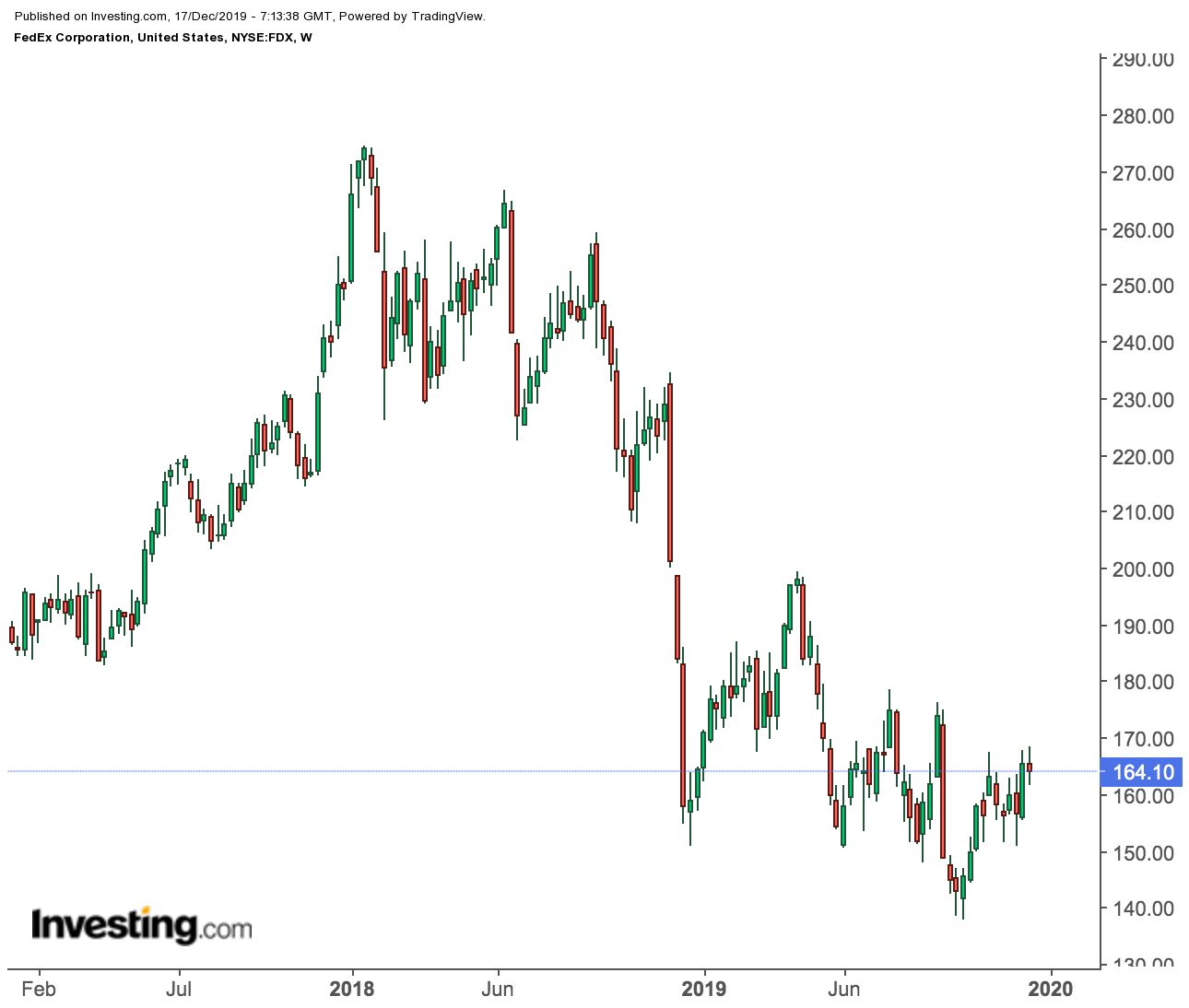* Reports Q2 2020 results on Tuesday, Dec. 17, after the close
* Revenue expectation: $17.6 billion
* EPS expectation: $2.82
Since peaking early last year, shares of FedEx Corporation (NYSE:FDX) have been in a deep slump as the world’s largest parcel delivery service fails to provide clarity about the future.
When the Memphis, TN-based shipper released its 1Q 2020 earnings statement in September, the company slashed its profit forecast for the year as the worsening economic environment, triggered by the U.S.-China trade spat, took its toll on the company’s Express delivery business — which is widely considered a proxy for the global economy.
The transportation giant now expects per-share earnings to fall between 16%-29% in the current fiscal year, compared with the forecast of a mid-single-digit percentage decline issued in June. FedEx also lowered its revenue outlook.
Blaming increasing trade tensions and policy uncertainty, Chief Executive Officer Fred Smith said in a conference call: “The global economy continues to soften and we are taking steps to cut capacity.”
The profit warning comes after the company posted an 11% drop in fiscal first-quarter profit, driven by the Express unit's weakness. This division delivers packages by jet and is especially vulnerable to global trade disruption.
Shares Tumble
That continuing drag sent FedEx shares tumbling about 40% since January 2018 when they hit a record high. The stock has gained about 4% during the past month on hopes of the U.S. and China trade deal. It closed yesterday down about 1% at $164.10.
In this context, FedEx earnings, released later today, will be important to watch for any signs of recovery in demand now that the world’s two largest economies are willing to slash tariffs and avert a full-blown trade war. That optimism on the world economy aside, FedEx also has its own structural issues to deal with.
The biggest one is the company’s continuing troubles at its European business after its costly takeover of Netherlands-based TNT Express in 2015. That deal is still very much a work-in-progress that has failed to unlock the value investors were hoping to see.
FedEx said in March the integration costs for the acquisition are expected to exceed $1.5 billion through fiscal 2021, with the potential of further escalation. The merger challenges along with the slowing European economy have raised doubts about the benefits of the TNT deal, with some analysts questioning the wisdom behind this massive undertaking.
With the softening economy, FedEx has also been restructuring its operations to cope with the rise of e-commerce orders. It recently ended is contract with Amazon.com (NASDAQ:AMZN) and announced plans to offer seven-day home delivery and to handle more of the packages it used to route through the U.S. Postal Service.
Bottom Line
FedEx’s Q2 earnings report should help clear uncertainty about the future outlook and offer some hope of recovery if the world’s economy is out of the woods after the U.S.-China trade deal. However, we don’t expect much upside in the stock unless the company is able to deal with its structural issues and revive its struggling European business
